Every morning, many people across the UK wake up wondering whether financial support is on the way specifically, if they might receive a Cost of Living Payment tomorrow.
With the rising pressure of energy bills, grocery costs, and everyday expenses, the hope for extra assistance is both understandable and widespread.
Over the last few years, these payments played a vital role for millions of low-income households, helping them stay afloat during turbulent economic times. However, as we step further into 2025, it’s essential to know where things stand.
Will another payment arrive? Is there anything else you can claim? And what should you do if you’re still struggling with the cost of living? This blog provides a complete and up-to-date explanation to help you understand what’s really going on, and where you can still find support.
What Happened to the Cost of Living Payments in the UK?
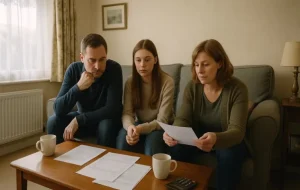
Between 2022 and early 2024, the UK government introduced Cost of Living Payments as a direct form of financial support for people on low incomes.
The initiative was launched in response to a dramatic rise in inflation, energy prices, and overall living costs triggered by global economic disruptions, including the post-pandemic recovery and international conflicts affecting fuel and food supplies.
These payments were not bonuses. They were vital support mechanisms for those already claiming benefits like Universal Credit, Pension Credit, and other income-based support schemes.
Across several payment windows, the government provided lump sums, £326, £324, £301, £300, and £299, depending on the qualifying period and the benefit being claimed.
For many families, these payments helped cover heating costs, fill gaps in food budgets, and provide short-term stability. However, as of February 2024, the scheme ended, marking the final wave of these one-off payments.
By this time, around eight million households had benefited from the programme. The final scheduled payment was deposited into eligible accounts between 6 and 22 February 2024. This payment marked the conclusion of a series that began in 2022.
Are Any Cost of Living Payments Planned for 2025?
The question on everyone’s mind is whether these payments will continue. Unfortunately, as confirmed by the Department for Work and Pensions (DWP) and the UK Government, there will be no Cost of Living Payment for 2025, and no further payments are scheduled.
This applies not only to general payments for those on means-tested benefits, but also to disability-related and pensioner-specific payments. The scheme has been formally closed.
According to official government guidance:
“There will be no Cost of Living Payment for 2025 and there are no more payments planned in the future.”
The decision to end the scheme is based on the belief that inflation and market volatility have now stabilised to a point where one-off payments are no longer necessary.
While the cost of living remains high, the government’s approach has shifted to broader structural support measures and local assistance.
Will I Get Cost of Living Payment Tomorrow?
This is the most searched question by benefit recipients in the UK, and the honest answer is no, unless your situation involves an overdue or delayed payment from the last eligibility period in 2024.
It’s important to understand that all eligible payments under the scheme were made automatically. If your benefit or tax credit entitlement qualified you for a Cost of Living Payment, and you were receiving it during the official window, the payment would have already reached your account, unless there was an exceptional delay.
When You Might Still Receive a Payment?
There are very limited situations where a Cost of Living Payment could still arrive in 2025:
- You were awarded a qualifying benefit at a later date, but your entitlement was backdated to the eligibility period.
- You changed your bank account, and the payment bounced back or was delayed.
- Your benefit claim was under review or corrected after the payment dates.
In these rare cases, DWP or HMRC may still process your payment, but only if it was owed from 2022 to 2024. There are no new payments for 2025.
If you believe you were eligible and haven’t been paid, you should contact the office that administers your benefit. Otherwise, you should not expect a new payment to arrive this week, or at any point during 2025.
What Benefits Qualified You for the Past Payments?
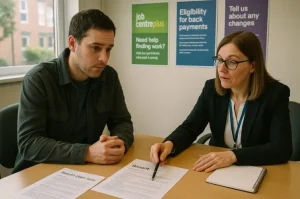
The Cost of Living Payments were strictly tied to certain benefits. If you were claiming one or more of these during specific periods, you were likely eligible for one of the five main payments.
Past Qualifying Benefits
- Universal Credit
- Pension Credit
- Income Support
- Income-based Jobseeker’s Allowance (JSA)
- Income-related Employment and Support Allowance (ESA)
- Child Tax Credit
- Working Tax Credit
Those receiving only contributory or new style JSA/ESA were not eligible. In joint claims, a single payment was issued per household.
Payment Schedule and Eligibility
| Payment | Eligibility Period | Payment Window |
| £299 | Nov–Dec 2023 | 6–22 Feb 2024 |
| £300 | Aug–Sep 2023 | 31 Oct – 19 Nov 2023 |
| £301 | Jan–Feb 2023 | 25 Apr – 17 May 2023 |
| £324 | Aug–Sep 2022 | 8 – 23 Nov 2022 |
| £326 | Apr–May 2022 | 14 – 31 Jul 2022 |
Each of these payments was made automatically. No applications were required, and eligibility was determined by DWP or HMRC using their internal records.
Why You Might Not Have Received a Payment?
Some people were surprised not to receive a payment, even though they were on benefits. There are several reasons why this could have happened.
One of the most common was the nil award condition. This refers to when your benefit amount is reduced to zero for the qualifying period, often due to income increases, changes in savings, or benefit sanctions.
Other reasons include:
- Having savings or earnings too high
- A sanction for failing to meet your claimant commitment
- Changes in benefits that made you ineligible during the qualifying period
In some cases, the payment could have been sent but failed to reach your account due to changes in banking information or administrative delays. If you fall into any of these categories, it is best to reach out to your benefit office for clarification.
Is the Message About Cost of Living Payment a Scam?
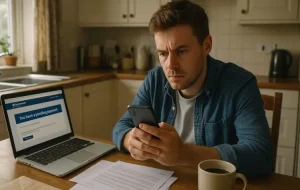
As with many government-related financial schemes, scams are unfortunately common. With the end of the Cost of Living Payments, fraudsters have stepped up efforts to exploit public confusion.
People have reported receiving messages via text, email, or social media, claiming they need to apply for their Cost of Living Payment or confirm bank details. These messages are not genuine.
How to Spot a Scam?
Legitimate government bodies like DWP or HMRC will never ask you to:
- Share your personal or bank details via SMS or email
- Click on unverified links
- Pay a fee to receive a government payment
If you receive a suspicious message, you should report it:
- Text messages: forward to 7726
- Emails: forward to report@phishing.gov.uk
Always check updates directly through GOV.UK or your benefit office.
What Financial Support Is Still Available in the UK?
Although the Cost of Living Payment scheme has ended, other support systems remain active. These are available to people on low incomes, those with disabilities, the elderly, and families with children.
Types of Ongoing Support
Benefits for Income and Work
- Universal Credit
- Pension Credit
- Jobseeker’s Allowance
- Carer’s Allowance
- Employment and Support Allowance (ESA)
Living Cost Assistance
- Council Tax Reduction
- Help with energy bills
- Housing Benefit
- Local authority support schemes
Support with Health, Disability, and Family
- Free prescriptions and dental care
- Disability Living Allowance (DLA), PIP
- Childcare and maternity cost help
- Free school meals
Each of these can be checked using independent benefit calculators, such as the one on Turn2Us or through Citizens Advice.
Could You Be Missing Out on Other Benefits?
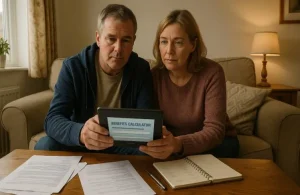
It’s surprisingly common for people in need to miss out on the support they’re entitled to. Research shows that nearly £19 billion in benefits goes unclaimed each year in the UK.
This happens for several reasons, including lack of awareness, difficulty navigating the system, or fear of stigma.
If you’re unsure what you qualify for, you can:
- Use a benefits calculator (like the one on Turn2Us)
- Visit Citizens Advice for in-person or online guidance
- Speak to your local council for tailored support
It only takes a few minutes to check, and it could result in financial assistance that you didn’t realise was available.
What Help Can You Get If You’re Over 60 or Have a Disability?
For older individuals and people living with disabilities, several specific benefits and forms of support continue into 2025, even after the Cost of Living Payments have ended.
If You’re Over 60
Those aged 60 or over can often access:
- Pension Credit, which tops up weekly income
- Winter Fuel Payments for heating bills
- Free travel passes on local transport
- Help with NHS prescriptions and eye care
It’s important to claim what you are entitled to. Many pensioners miss out simply because they don’t know a benefit exists or assume they won’t qualify.
Disability Support in 2025
Although the £150 Disability Cost of Living Payment is no longer active, the following support continues:
- Personal Independence Payment (PIP)
- Disability Living Allowance (DLA)
- Attendance Allowance
- Help with mobility or health-related costs
Many of these benefits also provide access to other types of help, including utility discounts and council tax reductions.
Where Else Can You Turn for Cost of Living Support?
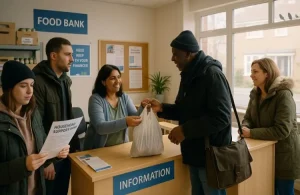
Even without national one-off payments, local authorities and charities continue to offer a safety net.
Local councils in England, Scotland, Wales, and Northern Ireland each manage welfare support schemes for residents in need. These vary by region but may include:
- Food and fuel vouchers
- Emergency housing support
- Debt counselling and crisis cash payments
In addition to council support, charities like Turn2Us offer access to grants tailored to various life situations. These might be available to carers, unemployed people, veterans, or those with medical conditions.
You can also contact:
- The Trussell Trust for food banks
- Mental health services if money worries are affecting your well-being
- Domestic abuse support organisations offering financial help
The key is to reach out early and not wait until things worsen. Help is still available even though the Cost of Living Payment scheme has ended.
Conclusion
The Cost of Living Payments were a lifeline for millions, but as of 2025, they have officially come to an end. There are no payments planned for this year, and it’s unlikely they will return under the current government strategy.
However, that does not mean all help has disappeared. From local councils to national benefits, there is a wide range of support systems designed to help individuals and families through financial hardship.
Whether you’re facing rising bills, struggling with housing costs, or navigating life with a disability, there is help available, you just need to know where to look.
FAQs
What was the last Cost of Living Payment date?
The last payment was made between 6 and 22 February 2024.
Can I still get a Cost of Living Payment in 2025?
No, there are no new payments planned or scheduled for 2025.
What should I do if I didn’t receive my payment?
You should contact the office that pays your benefit or tax credits.
Are Cost of Living Payment messages asking for personal info real?
No. These are likely scams. Do not share your bank details via text or email.
Can I get help from my local council?
Yes. Local councils provide financial support including vouchers, crisis funds, and food assistance.
Are there benefits I might be missing?
Possibly. Use Turn2Us or Citizens Advice to check your eligibility.
Is there a separate Cost of Living Payment for disabled people in 2025?
No. The Disability Cost of Living Payment ended in 2023, with no future payments announced.
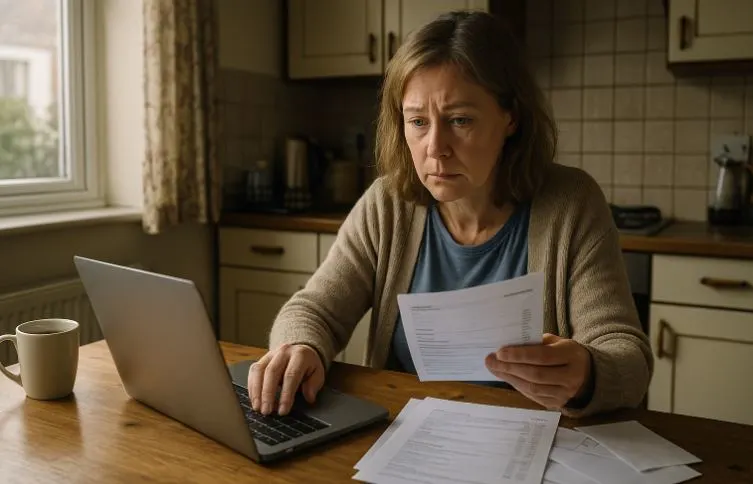
Leave a Reply